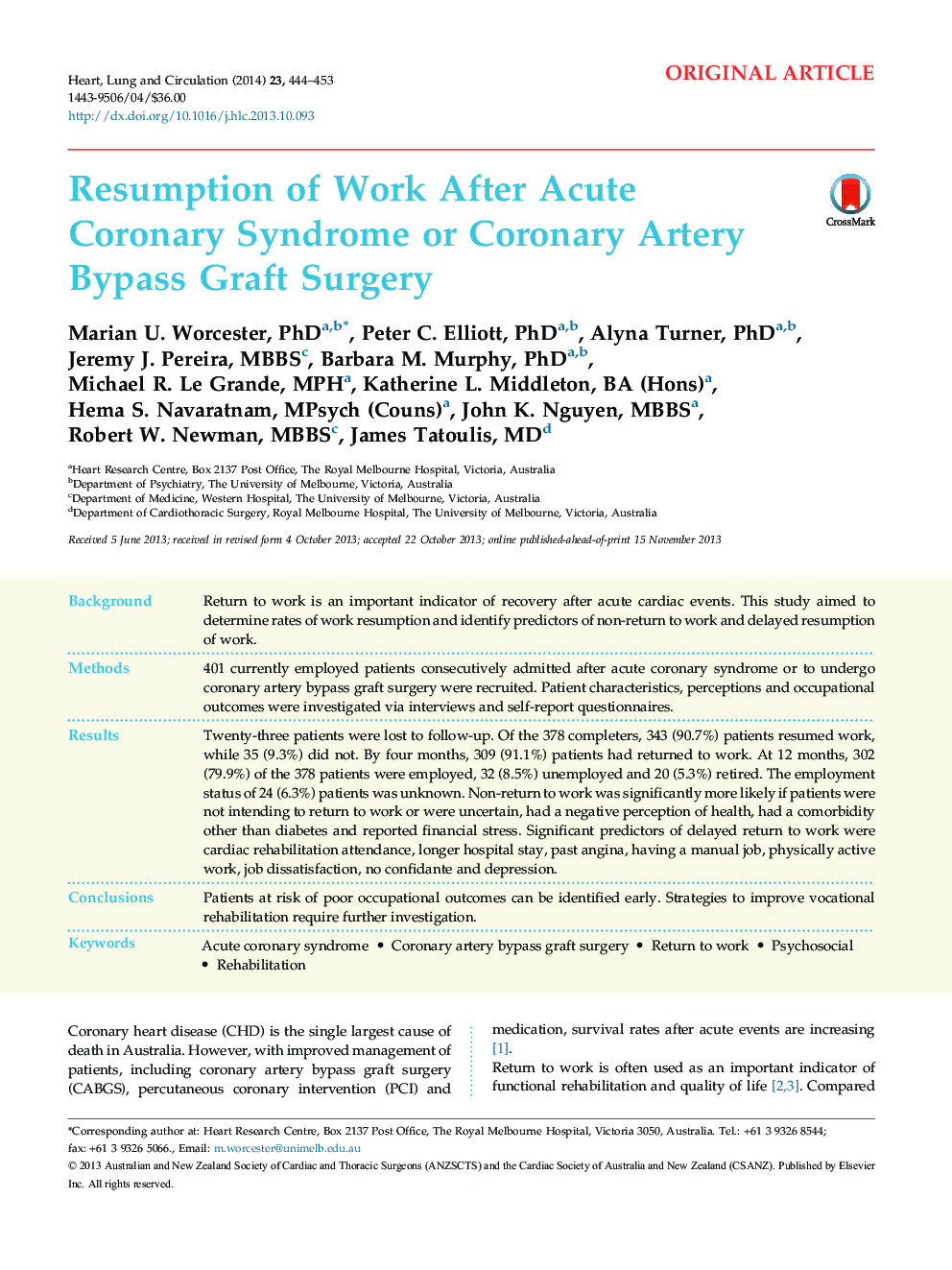| Article ID | Journal | Published Year | Pages | File Type |
|---|---|---|---|---|
| 2918218 | Heart, Lung and Circulation | 2014 | 10 Pages |
BackgroundReturn to work is an important indicator of recovery after acute cardiac events. This study aimed to determine rates of work resumption and identify predictors of non-return to work and delayed resumption of work.Methods401 currently employed patients consecutively admitted after acute coronary syndrome or to undergo coronary artery bypass graft surgery were recruited. Patient characteristics, perceptions and occupational outcomes were investigated via interviews and self-report questionnaires.ResultsTwenty-three patients were lost to follow-up. Of the 378 completers, 343 (90.7%) patients resumed work, while 35 (9.3%) did not. By four months, 309 (91.1%) patients had returned to work. At 12 months, 302 (79.9%) of the 378 patients were employed, 32 (8.5%) unemployed and 20 (5.3%) retired. The employment status of 24 (6.3%) patients was unknown. Non-return to work was significantly more likely if patients were not intending to return to work or were uncertain, had a negative perception of health, had a comorbidity other than diabetes and reported financial stress. Significant predictors of delayed return to work were cardiac rehabilitation attendance, longer hospital stay, past angina, having a manual job, physically active work, job dissatisfaction, no confidante and depression.ConclusionsPatients at risk of poor occupational outcomes can be identified early. Strategies to improve vocational rehabilitation require further investigation.
